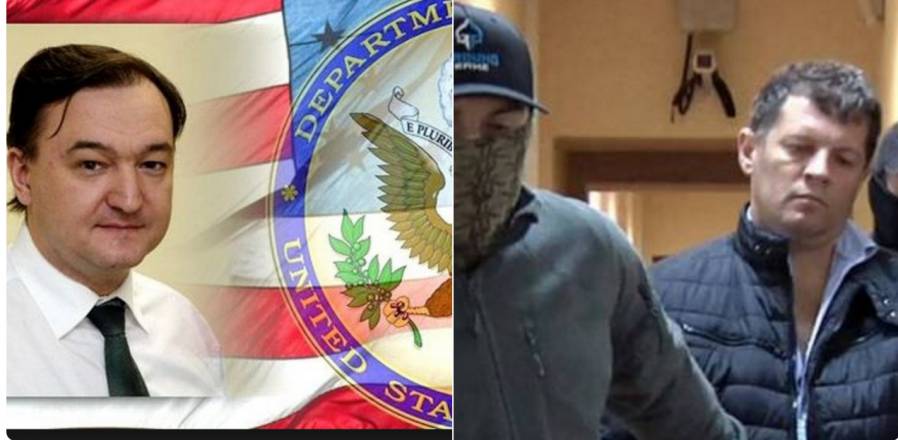Russia’s new offensive against civil society has grave implications for Ukrainian political prisoners

Russia has removed almost all independent rights activists from the Civic Monitoring Committees [ONK] which are allowed to visit remand and convicted prisoners. Those now entrusted to oversee observance of human rights in Moscow penitentiary institutions, for example, will include Dmitry Komnov, who is on the Magnitsky List and under US sanctions for his role in the death of Heritage Foundation lawyer Sergei Magnitsky. The move is disastrous, not least for Ukrainian political prisoners. It has often been the ONK who first provided information about Ukrainians whom Russia had effectively abducted, and their visits have been invaluable for monitoring how Oleg Sentsov, Oleksandr Kolchenko and other political prisoners are being treated.
The new list was posted on the Civic Chamber of the Russian Federation website. There can be no question that this is not deliberate sabotage. As well as removing many renowned rights activists, the Civic Chamber has also appointed far too few members. The sheer workload on each member will also seriously reduce the level of civic monitoring.
The most cynical appointment must be that of Lieutenant Colonel Dmitry Komnov who was the head of the Butyrka SIZO [detention unit] where lawyer Sergei Magnitsky was held. In drawing up the USA’s ‘Magnitsky List’, the US commission noted, for example, Komnov’s responsibility for the terrible conditions that Magnitsky was held in. He was also behind the cover-up concealing Magnitsky’s medical condition and was responsible for the disappearance of complaints about his detention.
Other appointments also raise eyebrows like that of Anton Frolkin from the ‘Officers of Russia’ organization and Pavel Pyatnytsky who has been accused of extorting money from prisoners’ families to ‘resolve’ the prisoners’ problems.
Those removed include renowned human rights activists Zoya Svetova and Anna Karetnikova. Svetova was a vital source of information about Ukrainian political prisoners being held in Lefortovo Prison. It was her initial visit that forced the FSB to admit that they were holding Ukrainian filmmaker Oleg Sentsov and three other Crimean opponents of Russian annexation back in May 2014. At the end of September she and colleagues reported that Ukrainian journalist Roman Sushchenko had been detained and was also in Lefortovo.
She played a major role in getting Russian Svetlana Davydova released. As reported here, the mother of 7, the youngest of whom she was still feeding, had been arrested and taken to Moscow on charges of ‘state treason’. This was how the FSB had chosen to qualify Davydova’s attempt to warn the Ukrainian embassy that the military unit near where she lived was probably being sent to fight in Donbas.
Svetova believes that the new makeup of the ONK disgraces the Civic Chamber and calls it a “challenge to civil society”. Her view is shared by most rights activists. It is not the first attempt to undermine the work the committees carry out. In 2013, Anton Tsvetkov, a highly controversial politician and head of the rather mysterious, but seemingly state-supported ‘Officers of Russia’, became head of the Moscow ONK in a scandalous appointment opposed by many well-known rights activist.
Contact will now be much more difficult with at very least 17 Ukrainian political prisoners. Nikolai and Tatyana Shchur, for example, have both been removed from the Chelyabinsk oblast ONK. They were active in ascertaining the whereabouts of Oleg Sentsov and have been visiting civic activist Oleksandr Kolchenko, sentenced to 10 years in the same ‘trial’ in which Sentsov received a 20-year sentence.
The move comes at a time when Russian President Vladimir Putin appears to be denying Russia’s obligation under the Minsk Agreement to release all political prisoners illegally held in Russia, and when Sentsov’s cousin has reported that Sentsov has been placed in a punishment isolation cell for 15 days. Russia’s justice ministry has also claimed falsely that both Sentsov and Kolchenko are Russian nationals and cannot therefore be extradited to Ukraine.
In April this year Tatyana Moskalkova, a Police Major General and MP from the Just Russia party was appointed Russia’s ‘human rights ombudsperson’. In one of her first interviews after taking office, she claimed that there are no political prisoners in Russia, only ‘extremists’.
Russia is illegally holding a number of Ukrainian political prisoners, as well as many Russian nationals also imprisoned on politically motivated charges. The conditions in Russian prisons are appalling, and the effective destruction of the one remaining independent mechanism for monitoring rights is likely to have catastrophic consequences.





